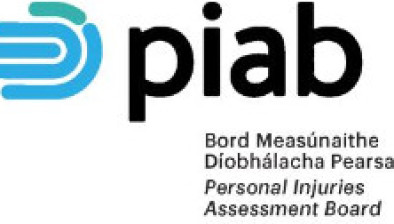High Court: Periodic payment order legislation ‘a dead letter’ in its current form
The new statutory scheme providing for periodic payment orders (PPO) for plaintiffs with catastrophic injuries has been described as “a dead letter” in the High Court.

About this case:
- Court:High Court
- Judge:Ms Justice Deirdre Murphy
Noting that the Courts did not have discretion to fix an increase other than that specified in the Harmonised Index of Consumer Prices (HICP), and that it was clear that a PPO linked to the HICP would lead to under-compensation, Ms Justice Deirdre Murphy said that no judge charged with protecting plaintiffs’ best interests could recommend such a scheme.
Finding that the Courts retained jurisdiction to make lump sum awards, Ms Justice Murphy said the scheme was intended to add “another string to the bow of the High Court” but that it was “a string which may not be played as frequently as might have been hoped”.
Background
The plaintiff, JH, was born in December 2014. In the hours following his birth, JH suffered a hypoxic brain injury due to the negligence and breach of duty of the Health Service Executive while he was under their care at Cork University Maternity Hospital.
As a result of this catastrophic brain injury, JH now has features of dyskinetic and spastic type cerebral palsy characterised by motor disability and coordination difficulties requiring life-long care and assistance in all activities of daily living.
Interim payment
In December 2015, JH’s mother issued a personal injuries summons on his behalf, and in May 2016, the HSE admitted liability for JH’s injuries. Thereafter, in July 2016, Mr Justice Kevin Cross approved an interim payment of €100,000.
In October 2016, Mr Justice Cross approved a settlement of €1.6m to satisfy JH’s claims until October 2019 when his claims for the cost of future care would be decided.
This settlement occurred against a backdrop of impending legislation to provide for periodic payment orders for life.
Periodic payment order legislation
The aforementioned legislation is the Civil Liability (Amendment) Act 2017, which amends the Civil Liability Act 1961 to provide for the award of damages by way of a periodic payments order in certain circumstances where a plaintiff has suffered catastrophic injuries.
Of particular relevance to the within proceedings is the indexation provision, Section 51 L, which states at paragraph (1):
“A periodic payments order shall provide for the amount of a payment under the order to be adjusted annually by reference to the Harmonised Index of Consumer Prices as published by the Central Statistics Office or such other index as may be specified under this section”.
Due to concerns about the PPO legislation, particularly the adequacy of the indexation provision and the inability to return to Court in the event of an unexpected change in JH’s care needs; JH’s solicitors suggested that a further interim payment was more appropriate than a PPO.
The HSE’s initial reaction was that a PPO should be made; however, it was noted that their position “evolved” during the course of the hearing.
In June 2019, JH’s solicitor issued a motion for directions from the President of the High Court, Mr Justice Peter Kelly.
Questions directed for consideration in the High Court
In July 2019, Mr Justice Kelly directed a trial before a High Court Judge on the following questions:
- Whether the legislation itself ousts the inherent jurisdiction of the Court to assess damages for the ward’s needs for three years from next October without imposing the PPO regime under the 2017 act, whether by reference to the best interests of the ward or otherwise?
- If the jurisdiction is not ousted, a determination as to what are the best interests of the plaintiff herein (interim three-year assessment or PPO).
- Whether the Court is precluded by the 2017 Act from fixing an increase other than the amount specified in the HICP?
- Whether and to what extent the Court retains jurisdiction to identify a means by which indexation of the recurring payment can be achieved that would avoid the risks of the recurring compensation falling behind having regard to wage and medical inflation?
Firstly, Ms Justice Murphy was satisfied that the new legislative regime did not oust the existing common law jurisdiction of the High Court to make a lump sum award either by way of final payment or by way of an interim payment. She said that Courts would presume that new legislation does not interfere with existing jurisdiction unless the intention to introduce radical change is expressed in very clear terms in the legislation (McEnery v Sheahan [2019] IESC 64 and AM v HSE [2019] IESC 3 considered).
Considering the terms of section 51 I, Ms Justice Murphy was satisfied that the new statutory scheme was intended to “supplement the Court’s existing jurisdiction rather than to oust or replace it”. Ms Justice Murphy said the scheme “adds another string to the bow of the High Court” but that, unfortunately “it is a string which may not be played as frequently as might have been hoped”.
Legislation in its current form “a dead letter”
Secondly, noting that the experts on both sides agreed that it was too early to assess future care needs, Ms Justice Murphy was satisfied that a three-year interim payment was in JH’s best interests.
Ms Justice Murphy said there was overwhelming evidence that a PPO linked to the Harmonised Index of Consumer Prices (HICP) would result in under-compensation – the expert evidence indicated that the annual amount needed to be linked to a wage-based index to ensure full compensation for future care needs. Ms Justice Murphy also considered expert evidence that wage inflation outstripped the HICP, and that as a matter of probability, by the time JH reached 50 years of age, a PPO linked to the HICP would only meet 48% of his care costs.
In circumstances where expert evidence was unanimous in asserting that the indexation chosen would not meet the future care needs of catastrophically injured plaintiffs, Ms Justice Murphy said that no judge charged with protecting plaintiffs’ best interests could approve a PPO adjusted by reference to the HICP – and that further, no competent financial expert would recommend it. As such, Ms Justice Murphy said that the legislation in its current form was “a dead letter”.
No discretion to fix alternative increase
Thirdly, considering Section 51 I (6)(g) of the 2017 Act, Ms Justice Murphy said the Court is precluded from fixing an increase other than the amount specified in the HICP – she said it was clear this was mandatory, that the Court did not have discretion, and that the power to review was conferred on the Minister.
Finally, explaining that the Courts did not have inherent jurisdiction in relation to PPOs, Ms Justice Murphy said that if such jurisdiction had existed, it would have been unnecessary for the Courts to repeatedly plea for the legislature to enact legislation such as the 2017 Act. However, reiterating the answer to question 1, Ms Justice Murphy said the jurisdiction at common law to make a lump sum award remained as it was prior to the enactment of the 2017 Act.










